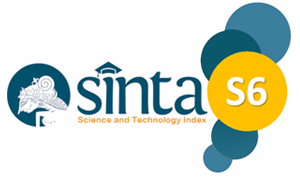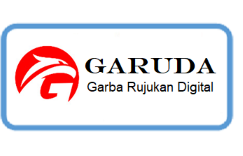ANALISIS PERSEPSI MAHASISWA TERHADAP EFEKTIVITAS VIRTUAL LAB DALAM PEMBELAJARAN PCR DI BIOLOGI MOLEKULER
DOI:
https://doi.org/10.30587/indexia.v7i1.9620Keywords:
Biologi molekular, Efektivitas pembelajaran, Lab virtual, PCR, PersepsiAbstract
Biologi molekuler berkembang pesat dengan berbagai aplikasi, termasuk dalam kedokteran dan bioteknologi. Salah satu teknik fundamentalnya adalah Polymerase Chain Reaction (PCR), yang berperan dalam memperbanyak DNA. Namun, pembelajaran teknik ini sering terkendala keterbatasan fasilitas laboratorium. Virtual Lab menjadi alternatif yang memungkinkan simulasi eksperimen tanpa bergantung pada laboratorium fisik. Penelitian ini bertujuan menganalisis efektivitas Virtual Lab dalam meningkatkan pemahaman mahasiswa terhadap PCR. Metode yang digunakan adalah deskriptif kuantitatif dengan pendekatan survei terhadap 20 mahasiswa Biologi Molekuler melalui angket berbasis skala Likert. Data dianalisis secara deskriptif berdasarkan persentase dan rata-rata skor. Hasil penelitian menunjukkan bahwa Virtual Lab berdampak positif terhadap pemahaman mahasiswa. Sebelum mengikuti simulasi, pemahaman konsep PCR masih rendah. Setelahnya, terjadi peningkatan signifikan dalam pemahaman konsep, kemampuan menjelaskan tahapan PCR, serta kesiapan dalam praktik langsung. Virtual Lab juga dinilai fleksibel dan memungkinkan latihan mandiri. Namun, keterbatasan tetap ada, seperti minimnya pengalaman dalam mengoperasikan alat PCR secara nyata. Oleh karena itu, kombinasi Virtual Lab dengan praktikum langsung disarankan untuk pembelajaran PCR yang lebih optimal.
Kata Kunci: Biologi molekular, Efektivitas pembelajaran, Lab virtual, PCR, Persepsi
References
[2] Alhashem, F., & Alfailakawi, A. (2023). Technology-enhanced learning through virtual laboratories in chemistry education. Contemporary Educational Technology, 15(4), ep474. https://doi.org/10.30935/cedtech/13739
[3] Bernard, R. M., Borokhovski, E., Schmid, R. F., Tamim, R. M., & Abrami, P. C. (2014). "A meta-analysis of blended learning and technology use in higher education: From the general to the applied." Journal of Computing in Higher Education, 26(1), hal. 87-122. https://doi.org/10.1007/s12528-013-9077-3
[4] Green, H., & Hughes, G. (2013). Virtual Learning and Higher Education. Routledge.
[5] Govender, R. (2023). Teaching and learning using virtual labs: Investigating the effects on students’ self-regulation. Cogent Education, 10(1), 2172308. https://doi.org/10.1080/2331186X.2023.2172308
[6] Hantoobi, M., et al. (2023). Learning analytics in virtual laboratories: a systematic literature review of empirical research. Smart Learning Environments, 10(1), 23. https://doi.org/10.1186/s40561-023-00244-y
[7] Lal, S., & Kumar, S. (2020). "E-learning in medical education: A blended learning approach." Journal of Education and Health Promotion,9, 239.
[8] Mashami, R. A., et al. (2023). Use of PhET Simulations as A Virtual Laboratory to Improve Students' Problem Solving Skills. Jurnal Penelitian Pendidikan IPA, 9(12), 11455–11465. https://doi.org/10.29303/jppipa.v9i12.6549
[9] Potkonjak, V., Gardner, M., Callaghan, V., Mattila, P., Guetl, C., Petrovic, V. M., & Jovanovich, K. (2016). Virtual laboratories for education in science, technology, and engineering: A review. Computers and Education, 95, hal. 309–327.
[10] Salter, D., Pang, M., & Sharma, M. (2009). "Active learning in virtual laboratories." Higher Education Research & Development,28(1), hal. 31- 44.
[11] Spernjak, A., & Sorgo, A. (2017). Differences in acquired knowledge and attitudes achieved with traditional, computer-supported and virtual laboratory biology laboratory exercises. Journal of Biological Education. doi: https://doi.org/10.1080/00219266.2017.1298532
[12] Suryanti, E., Any, F., Sri, R., Riandi (2019). Identifikasi Kesulitan Mahasiswa Dalam Pembelajaran Biologi Molekuler Berstrategi Modified Free Inquiry. Jurnal Pendidikan Dan Keguruan, 10 (2) : hal. 37-47
[13] Suryanti, E., Any, F., Sri, R., Riandi (2019). Persepsi Mahasiswa terhadap Penggunaan Virtual Laboratory dalam Pembelajaran Biologi Molekuler. Journal of Natural Science and Integration, 2 (2) : hal. 153 – 162
[14] Tsirulnikov, A., et al. (2023). Game on: immersive virtual laboratory simulation improves student learning outcomes & motivation. FEBS Open Bio, 13(2), 123–134. https://doi.org/10.1002/2211-5463.13567
[15] UNESCO. (2021). The Future of Education: Digital Learning and Virtual Laboratories. https://www.unesco.org/en/digital-learning
[16] Zhang, Y., et al. (2023). Effectiveness of virtual laboratory in engineering education: A meta-analysis. Computers & Education, 190, 104627. https://doi.org/10.1016/j.compedu.2023.104627



 Template INDEXIA
Template INDEXIA



